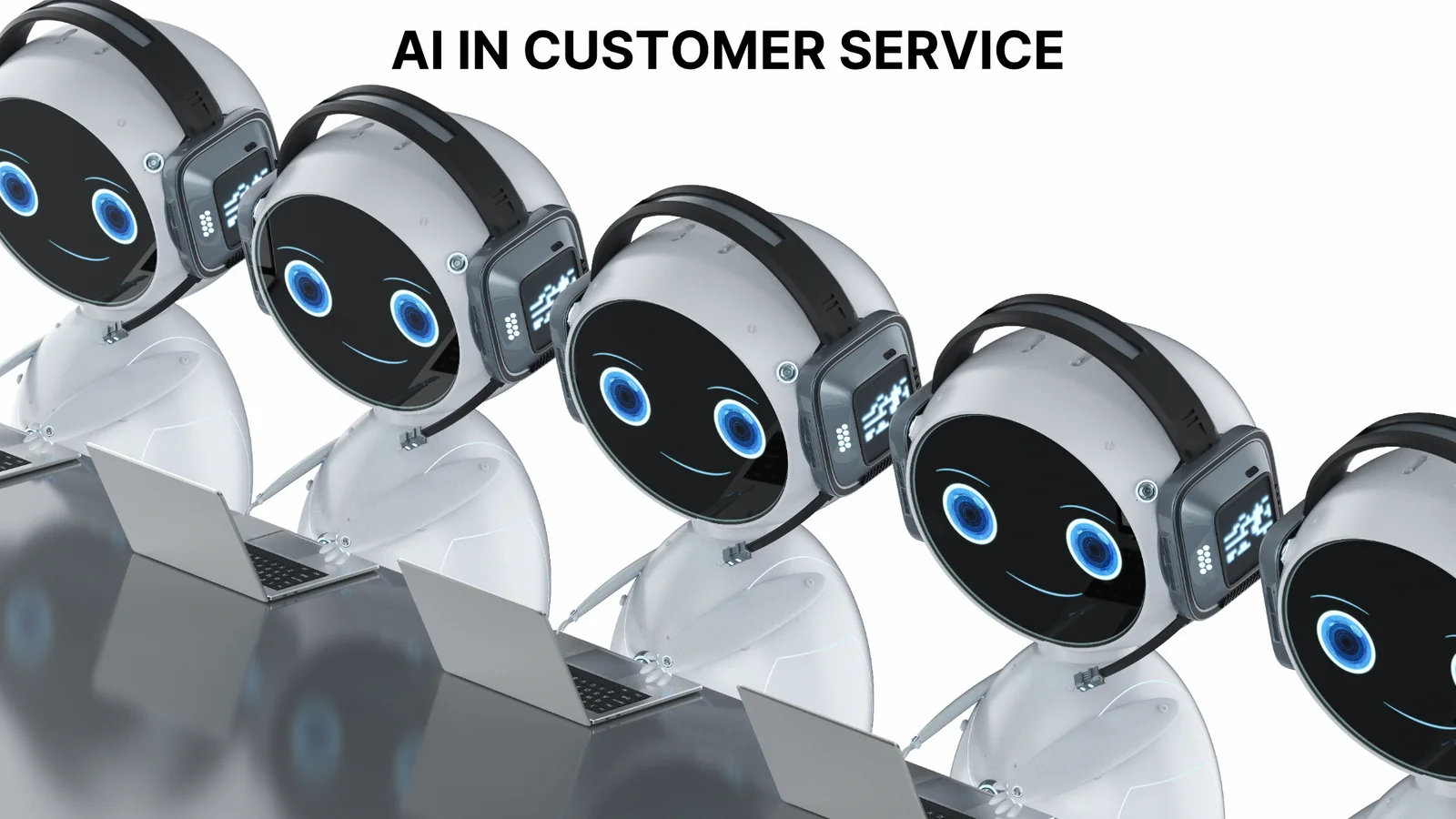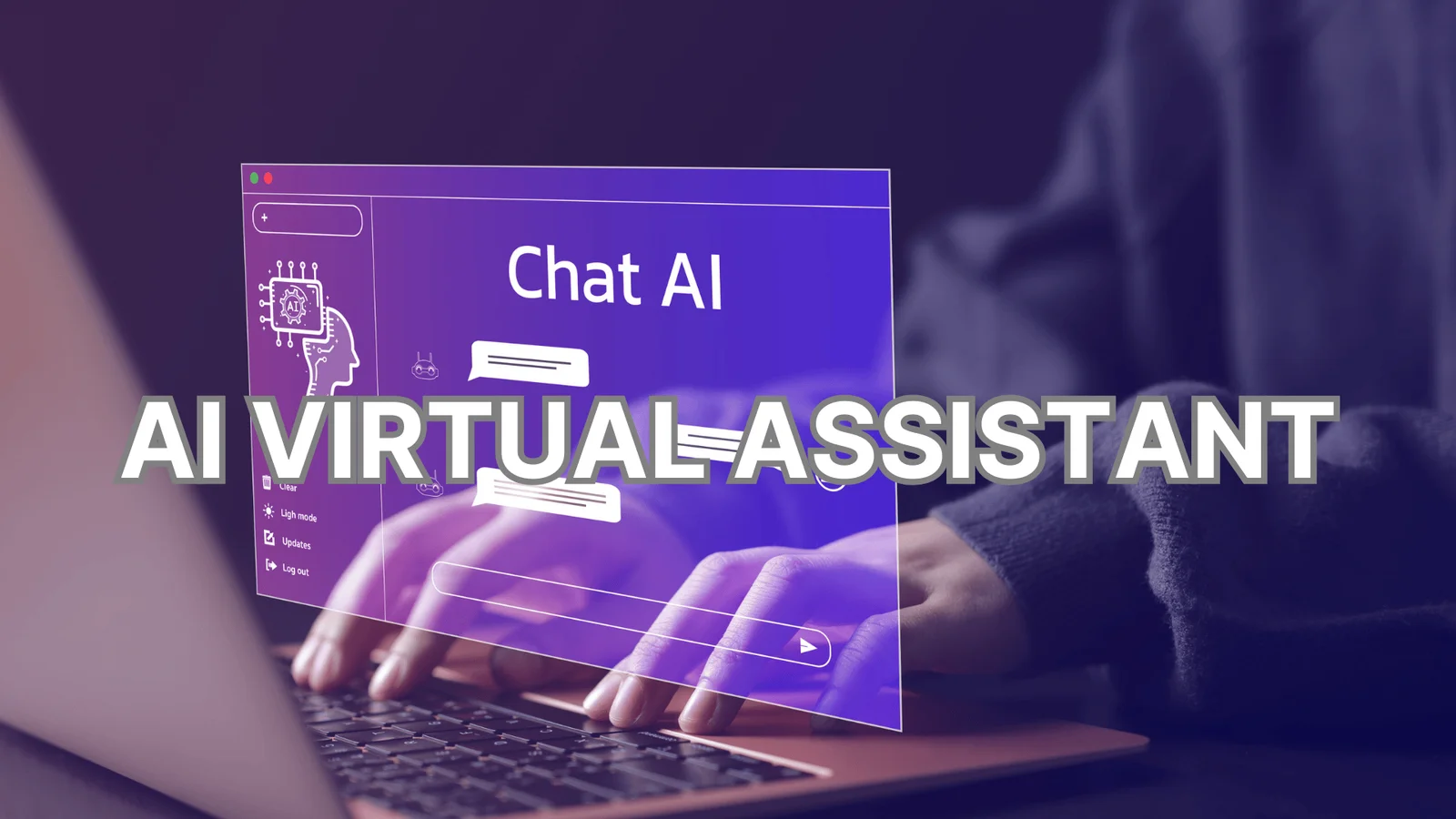Revolution of AI in Customer Service: A Glimpse into the Future
According to the current trend of competition in the market, customer expectations and demands have shifted higher, and the organization needs to provide up-to-par efficient support, and hence AI in customer service has turned the tables. It is no longer some far-fetched futuristic idea, but the present-day reality of how companies address their customer needs and how customer support will look in the future.

The Future of Using AI in Customer Service
AI in customer service uses machine learning, NLP, and other techniques to automate customer services. These technologies range from support bots to analytics that enable AI customer service companies to service their customers round the clock, solve their problems faster, and even possibly predict what a customer is likely to require before requesting it.
Core Components of AI in Customer Service
- AI Chatbots in Customer Service:
Such virtual assistants act as automated customer service for handling numerous simple and complex questions and concerns through natural language processing. You can host them on websites, in applications, and on social networks. They can handle both simple and complex issues, offering customers a self-service option. AI chatbots have evolved to manage nuanced conversations, helping customers resolve problems without the need for human intervention.
- Natural Language Processing (NLP):
NLP helps AI systems recognize, analyze, and generate human language. This technology assists in smarter customer service by facilitating the understanding of customer inquiries and generating proper chatbot responses. By interpreting and analyzing customer inquiries, NLP ensures that chatbots respond accurately and contextually, making interactions smoother and more intuitive for customers.
- Machine Learning Algorithms:
Over time, AI learns from the interactions between the system and the users and enhances their response. This adaptive learning helps to provide solutions that are better tailored to customers’ needs and requests. These algorithms analyze previous interactions, improving responses based on customer feedback and behavior. This self-learning aspect ensures that AI adapts to provide tailored solutions, further enhancing the customer experience.
- Predictive Analytics:
AI helps to make forecasts based on previous results and customers’ behaviors based on historical data to prevent possible drawbacks and improve overall customer satisfaction. Predictive analytics enhances satisfaction by identifying patterns and anticipating customer requirements, helping companies prevent problems before they arise.

AI In The Future Of Customer Service
The role of AI in customer service is prophesized to grow to be ever more essential as it becomes a key element of consolidated customer support initiatives. Here are some key trends and predictions:
Hyper-Personalization:
- Cognitive technologies and artificial intelligence will help organizations create hyper-personalized customer experiences. AI systems process huge amounts of information and are capable of customizing the interaction based on personal likings, past purchase behavior, and psychological characteristics.
- This level of personalization will therefore translate to product recommendations, and marketing, right down to the language used when dealing with the customer.
Voice-Activated AI Assistants:
- It is expected that as voice recognition technology develops further, AI-based solutions for customer service will incorporate more voice-activated helpers. Such assistants will also be in a position to support customers through smart devices in an easier and more natural manner than before.
- Customer service AI companies will probably emerge, entering the market to continue the branded experience from the customer’s perspective.
AI-Enhanced Human Agents:
- AI is not a threat to human agents but more like a tool as it will complement their work. Artificial intelligence will support human agents by being a real-time information provider, providing suggestions on what to say, and handling all the monotonous tasks.
- This will keep the human agents more engaged in complex, value-added interactions and make the whole process more streamlined and satisfactory.
Predictive Customer Support:
- The future dynamics of customer service will thus be characterized by proactive rather than reactive use of artificial intelligence. AI systems will take preventive measures to address all customer needs even without being prompted to do so by the customers.
- Such a trend will find expression in the increasing use of predictive analytics that can help to detect patterns and potential issues, resulting in a more proactive approach to customer service.
AI-Powered Self-Service:
- AI will enable customers to solve problems on their own with sophisticated self-service mechanisms in place. Automated customer service solutions will consist of smart searches, knowledge base articles, and tutorials as a means of self-service for customers.
- This trend will decrease the amount of calls answered by human operators and enhance customers’ experience by making suggestions readily available.
Benefits of AI in Customer Service
This shows how the use of the best AI chatbots in customer service offers many advantages, driving the widespread implementation of this technology across organizations. Some of the key advantages include:
– 24/7 Availability:
AI-powered customer service tools, such as chatbots, allow companies to offer round-the-clock support. Customers can receive help anytime, enhancing their satisfaction and engagement.
– Faster Response Times:
AI chatbots and automated responses enable immediate responses, shortening wait times and improving the overall experience. Customers get the information they need instantly, which is especially valuable for urgent issues.
– Scalability:
AI systems can handle high volumes of customer queries simultaneously, making them invaluable for companies that experience spikes in customer interactions or seasonal increases in demand.
– Cost Efficiency:
By automating repetitive tasks, AI reduces the need for large customer service teams, saving companies on labor costs and reallocating resources to more strategic initiatives.
– Consistency:
AI keeps customers informed with reliable data and that minimizes the chances of making mistakes.
– Data-Driven Insights:
AI in customer support creates valuable insights about clients which can optimize the communication processes, and customer offerings.
Challenges and Considerations of AI in Customer Service
While the future of customer service is promising, businesses must navigate certain challenges to fully realize its potential:
– Data Privacy Concerns:
Leveraging AI in maintaining customer relationships entails dealing with a huge volume of personal information. There is a need for compliance with data protection laws and strong security measures to safeguard customers’ data.
– Maintaining Human Touch:
However, there are several occasions when customers need to talk to a real person and not a representative of AI. This means AI cannot effectively address more sensitive topics or questions that require personal understanding and concern. Perhaps, the most crucial aspect is to adequately combine the automated and human services to ensure the customers’ positive experience.
– Continuous Learning and Improvement:
Just as human life has a lifespan, knowledge does too; therefore, we must frequently update artificial intelligence systems. Companies need to spend time and money to advance their AI-based customer relations technologies to suit the demands of customers.
The Future Landscape: Introducing Customer Service Solutions Enabled by Artificial Intelligence
Technology becomes part of people’s lives, and this implies that with continued improvement of AI equipment, customer service will be made better, easier and customized. The advanced artificial intelligence in service context is expected to extend to yet higher levels of predictiveness in the field of analytical insights to help business enterprises anticipate the customers’ patterns and trends. This shift will enable business to fine-tune their messaging and tailor product offerings and services in better ways and thus provide better experiences.
Enhanced Omnichannel Interactions
They will also help create better end-to-end and omnichannel Customer service solutions. Using analytics, companies can map customer experiences across different touchpoints and make channel transitions seamless. This capability improves the customer journey as clients are not limited to a single platform when interacting with a brand.
Use of Customer Experience as a Source of Competitive Advantage
With customer experience as one of the most important factors defining competitiveness, more companies will turn to AI in their customer service approach. To sum up, AI helps to increase and predict customer’s needs and thus create more sustainable customer relationships.
The Use of Artificial Intelligence in Customer Service: Best Examples by Industry
AI’s potential in customer service is already being realized across various industries:
- E-commerce: In on line shopping, artificial intelligence powered chat bots help the customers to search for the products, using their previous purchase history to recommend products as well as guide the customer through the returns process.
- Healthcare: Patients benefit from quick answers to medical questions, appointment setting, and medication prompts that AI supplies. It also enables healthcare providers to forecast the needs of the patient, enhancing the quality of care.
- Banking and Finance: Financial institutions employ AI to handle account queries, monitor spending status, and detect fraudulent activities. The use of artificial intelligence in delivering customer service to banks has enhanced security, ease, and interactive features of customer relations.
Final Words
Undoubtedly customer service through AI will continually evolve with intelligent solutions providing ways for businesses to better engage their customers. As more companies using AI for customer service evolve, these companies will reap the benefits of expounded scale and consumer satisfaction. But to start leveraging this technology, businesses have to overcome these difficulties and dedicate resources to creating subsequent AI systems that will be safe, flexible, and capable of creating positive consumer experience. Visit here to learn more about how AI is practiced in everyday life beyond customer service.
Customer service hasn’t just shifted towards AI; it has pivoted. AI will permanently transform the customer service space in the coming years. Exploit the prospects of AI in the future of customer service and move beyond today’s digital innovations.